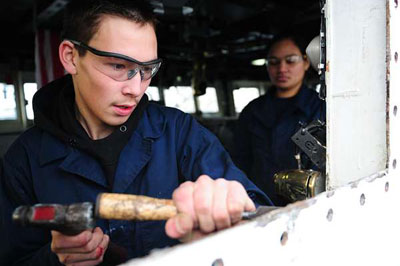Career Guidance for Students
Can’t decide on a career? Try Job Shadowing

Use job shadowing to experience a profession in person by observing a typical day of work in the field.
The Student Guide to Informational Interviews

Build your network and get valuable career advice by conducting an informational interview.
Steps for Getting a Job After College

See the top 10 things you can do to ensure you land a fulfilling job after college.
Best College Internship Programs

Best college internships that offer real work experience and a chance to get a foot in the door towards a career.
Motivational Graduation Speeches

Get fired up about your career and passions by watching these motivational graduation speeches.
Advice for College Graduates

Motivating words of advice to college graduates on how to go on to a successful career after college.
- Best College Internship Programs
- Benefits of doing an Internship
- How to Choose a Career
- Can’t decide on a career? Try Job Shadowing
- The Student Guide to Informational Interviews
- Motivational Graduation Speeches
- An Entrepreneur's Advice to College Graduates
- Resources for College Graduates
- Planning your Life After College
- Tips for Beginning your Career
- Steps for Getting a Job After College
- How to Prepare for a Job Interview
- Best Companies for Entry Level Jobs
- Who Hires the Most College Grads?
- Best Places to Work After Graduation